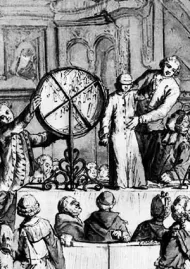Voltaire, Casanova, and 18th-Century Lotteries

Lotteries have long been utilized as a financing vehicle by governments and private entities to raise funds for various projects and public goods. Historically, lotteries provided an attractive alternative to taxation, particularly when additional taxes faced stiff public resistance. For instance, European governments used lotteries to fund colonial expansion and public infrastructure projects, with state lotteries becoming widespread by the late 17th century. In France, during the 18th century, the writer and philosopher Voltaire, along with mathematician Charles Marie de La Condamine, capitalized on a bond lottery set up by the French government. They formed a syndicate, purchasing almost worthless bonds and winning substantial lottery payouts, making Voltaire independently wealthy.
Similarly, the adventurer Giacomo Casanova played a pivotal role in establishing a national lottery to financially support the French military school, École militaire, in 1751. His proposal of a transparent number lottery, drawn publicly to ensure fairness, was highly successful and led to significant financial profits. Both Voltaire and Casanova's involvement with lotteries highlights the critical role these games played in financing large-scale state and private initiatives, and their ability to navigate and exploit these systems for personal gain underscores the intricate interplay between governance, finance, and opportunism during that era.